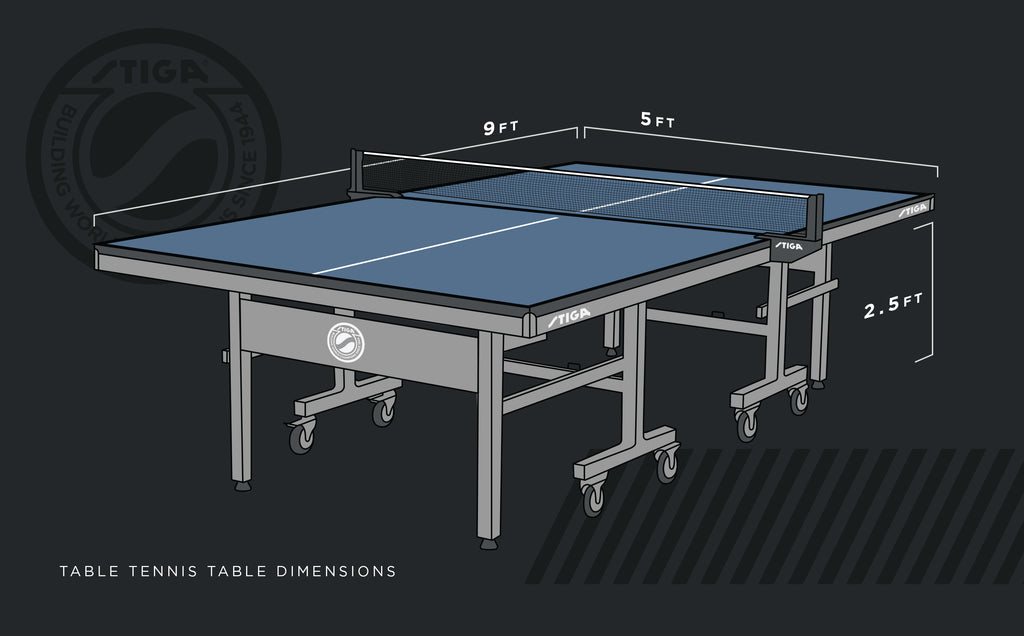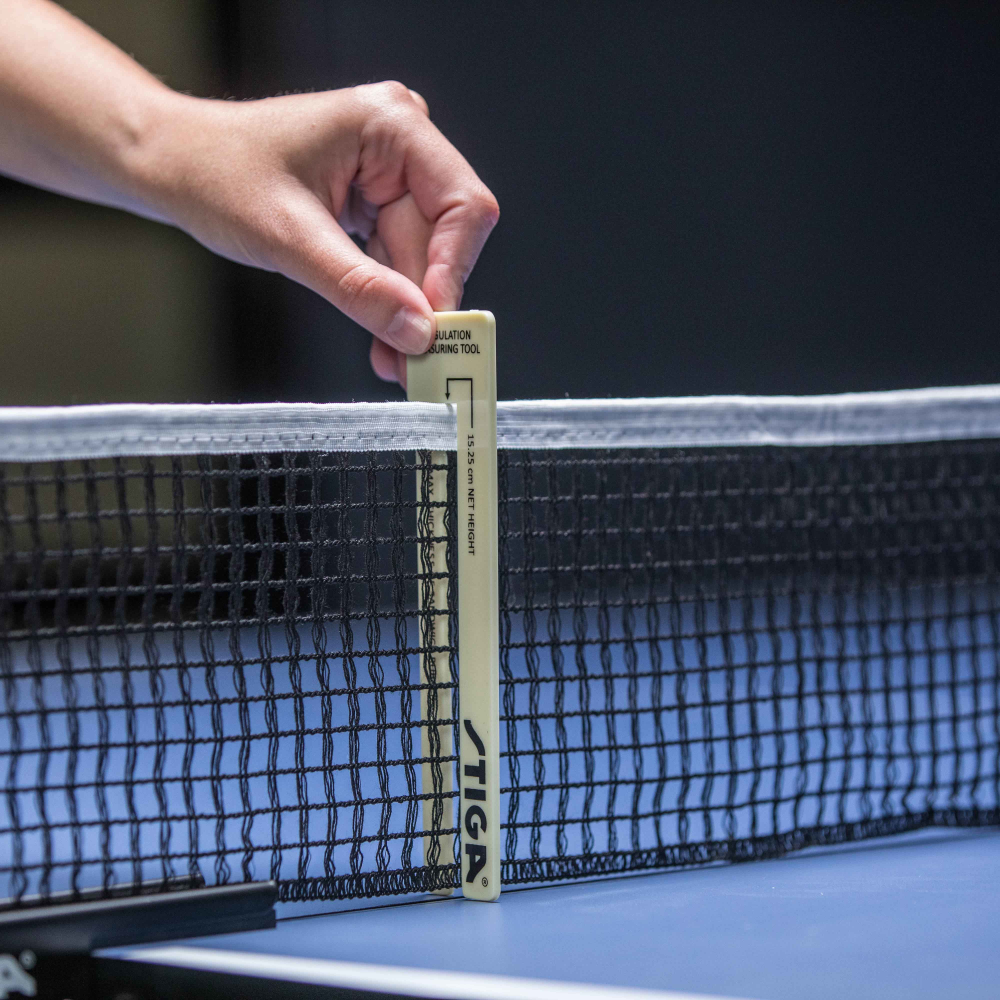How Big Is A Ping Pong Table? | 2025 Guide
The size and dimensions of a ping pong table can have a significant impact on the game's outcome, making it crucial to understand what makes a great ping pong table. Let's walk through every aspect of a tables' thickness, play surface, dimensions and what that means for the player.
What Is the Standard Ping Pong Table Size?
A standard ping pong table is 9 feet long, 5 feet wide, and 2.5 feet high. The table is divided into two equal halves by a net that is 6 inches high. The playing surface of the average table is made of a continuous piece of material, typically green or blue, and has a thickness between 0.5 - 1 inch.
The table's lengthwise lines, also known as the sidelines, are painted white and are 2 inches wide. The end lines, which run parallel to the net, are also painted white and are 0.75 inches wide.

The Playing Surface
The playing surface of a table is essential for a smooth and consistent game. The most common materials used for ping pong table surfaces are particleboard, medium-density fiberboard (MDF), and plywood. These materials are covered with a thin layer of laminate, which gives the playing surface a smooth and even finish.

The Basics of Ping Pong Table Thickness
Ping pong tables are available in various thicknesses, typically ranging from 12mm to 25mm. The thickness refers to the top playing surface of the table, which is often made of wood or composite materials. While the official regulations by the International Table Tennis Federation (ITTF) require a minimum thickness of 22mm for sanctioned competitions, different thicknesses offer unique characteristics that can enhance or influence gameplay.
Impact on Ball Bounce and Speed: The thickness of a table directly affects the ball's bounce and speed during gameplay. Thicker tables (20-25mm) tend to provide a more consistent and higher ball bounce, allowing players to execute spin shots and more intricate techniques. Additionally, a thicker table absorbs less energy from the ball, resulting in a faster game pace. Conversely, thinner tables (12-15mm) may produce lower ball bounce and slower gameplay, suitable for beginners or casual play.
Table Sturdiness and Stability: The thickness of a ping pong table also contributes to its overall sturdiness and stability. Thicker tables tend to be more robust and resistant to warping or sagging over time, ensuring a level playing surface. This stability becomes particularly crucial during intense rallies and powerful shots, as the table needs to withstand the impact without significant vibrations or movement.
Durability and Longevity: Thicker ping pong tables often boast improved durability and longevity compared to their thinner counterparts. The additional thickness adds structural integrity, making the table more resistant to wear and tear. Thicker tables are less prone to chipping, cracking, or warping, ensuring that your investment will last for years to come.
Considerations for Different Skill Levels: When choosing the ideal thickness for a ping pong table, it's essential to consider the skill level of the players who will be using it. Professional or advanced players generally prefer thicker tables, as they offer a higher level of control, faster gameplay, and better ball bounce. Intermediate and recreational players may find thinner tables more suitable for casual play or practice sessions.
Ping pong table options are numerous but here's a few breakdowns based on play style:
- Advanced, Tournament-Level Players - Opt for the thickest tables (19-25mm) made to ITTF standards for the highest level of play.
- Intermediate, Competitive Players - Competitive, mid-range thickness (15-19mm) tables built for the player training to elevate their game from recreational play.
- Recreational, Family Fun - Thinner options (12-15mm) designed for family-friendly competition or practice sessions to begin honing your skills. Great option for all ages.
- Outdoor, Weather-Resistant Tables - No matter the season, the ping pong game never has to stop. These tables can withstand the elements with a special weather-resistant coat and galvanized aluminum.
- Conversion Tops - For turning that pool table into a competitive ping pong table in seconds - regulation sized, with thickness mirroring full-sized tables.
The Net
The net is an essential part of the game. It is 6 inches high and divides the table into two equal halves. The net must be pulled taut and have a white cord running along its top edge. The posts that hold the net up must be located at the center of each end of the table and be 6 inches tall.

What Is the Average Ping Pong Table Height?
The height is also an important consideration. A standard ping pong table is 2.5 feet tall, but there are also adjustable-height tables available. Players should choose a table that is comfortable for them to play on, with a height that allows them to maintain proper posture while playing.
Conclusion
The size and dimensions of a ping pong table are crucial elements to consider when buying a table for your home or game room. A standard table measures 9 feet long, 5 feet wide, and 2.5 feet tall. The playing surface is typically made of particleboard, MDF, or plywood and covered with a thin layer of laminate. The net is 6 inches high and divides the table into two equal halves. The height of the table is also an important consideration, with a standard height of 2.5 feet.
Understanding these dimensions can help you choose the right ping pong table for your needs, whether you're a professional player or just looking for some casual fun with friends and family. Pong on!


